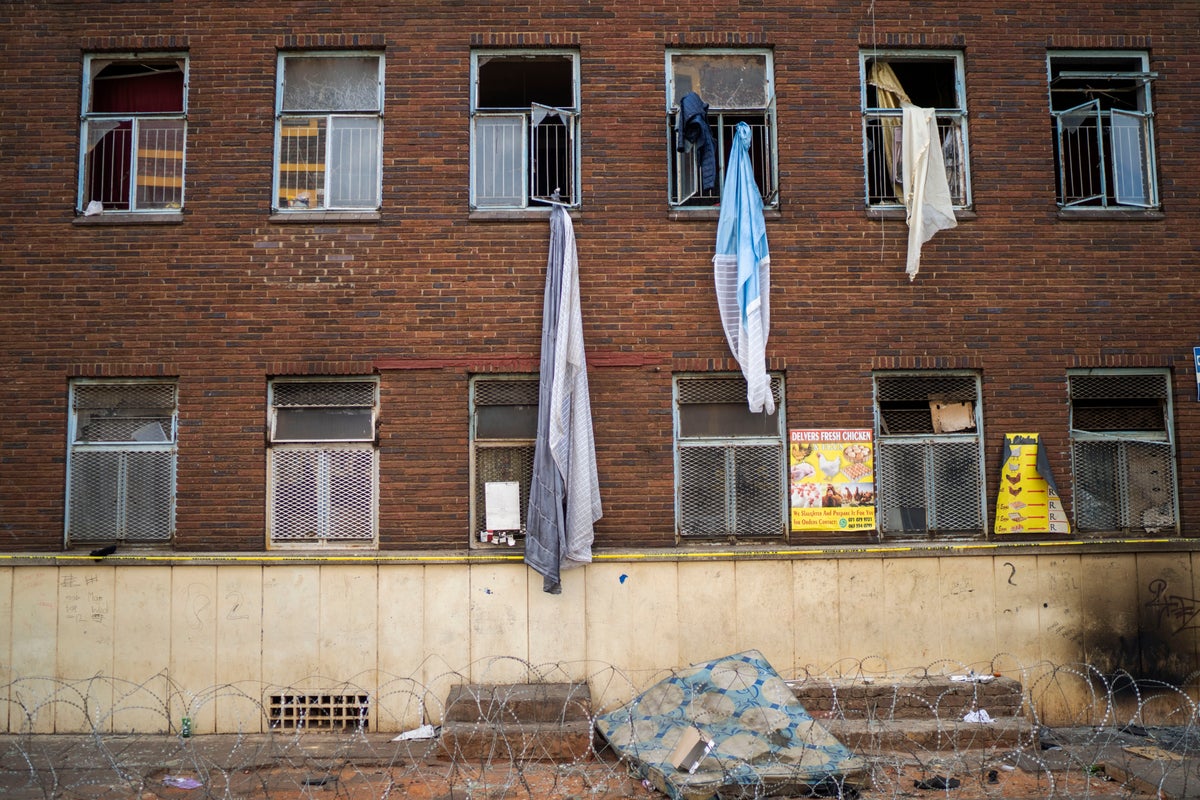
Emergency services teams have left the scene of one of South Africa's deadliest inner-city fires and pathologists faced the grisly task Friday of identifying dozens of charred bodies and some body parts that have been transported to several mortuaries across the city of Johannesburg.
That will establish whether the death toll of 74 rises following Thursday's predawn blaze at a derelict downtown apartment building that was inhabited by mainly homeless people and others who found themselves marginalized in one of Africa's biggest cities.
Emergency services personnel conducted three searches through all five stories of the building and believe that all bodies and body parts have been removed from the scene, Johannesburg Emergency Services spokesperson Nana Radebe said.
Radebe said the building — now a burned out shell — has been handed over to the police and forensic investigators, who will conduct their own searches.
The remains of some of the victims were taken to a mortuary in the township of Soweto in the southwestern outskirts of South Africa's economic hub, where people began to gather Friday morning as authorities called for family members to help in identifying the dead.
Motalatale Modiba, a Gauteng province health department spokesperson, said 62 of the bodies were so badly burned as to make them unidentifiable.
Thembalethu Mpahlaza, the CEO of Gauteng's Forensic Pathology Services, said at a news conference Thursday evening that numerous unidentified body parts had also been found in the remnants of the building and his investigators needed to establish if they were part of the remains of the victims already accounted for or were parts of other bodies.
Radebe said the official death toll had not increased from 74 by early Friday.
Many of the dead in the fire were believed to be foreign nationals and possibly in South Africa illegally, making it more difficult to identify them, city officials said. Local media reports, quoting residents of the building, said at least 20 of the dead were from the southern African nation of Malawi.
The fire ravaged a city-owned building that had effectively been abandoned by authorities and had become home to poor people desperately seeking some form of accommodation in the rundown Johannesburg central business district. The building was believed to be home to around 200 families, Johannesburg mayor Kabelo Gwamanda said.
The phenomenon is common in Johannesburg and the buildings are known as “hijacked buildings.”
At least 12 of the dead were children and more than 50 people were injured, including six who were in a serious condition in the hospital.
Many witnesses said in the immediate aftermath of the fire that they had been separated from family members in the chaos of escaping the inferno. Some said there were children walking around alone outside the building, with no idea if their parents or siblings had survived.
Attention in South Africa also turned to who would be held responsible for the tragedy, as emergency services personnel and witnesses painted a picture of a building full of shacks and other temporary structures, and where multiple families were crammed into single rooms and some were living in the basement parking garage.
Local government officials have said that people were trapped inside the building because security gates were locked and there were no proper fire escapes. Many reportedly burned to death near one locked gate as they struggled to escape. Others jumped out of windows and died because of that, witnesses and officials said.
The police have opened a criminal case over the fire, while South Africa's Parliament has called for an investigation.
South African President Cyril Ramaphosa, who visited the scene of the fire on Thursday, said the tragedy was partly caused by “criminal elements” who had taken over the building and were renting out living space to homeless, poor people, some of them South Africans and some foreign migrants.
Hijacked buildings have been an issue in Johannesburg's city center for years, if not decades.
“The lesson for us is that we’ve got to address this problem," Ramaphosa said.
___
Imray reported from Cape Town, South Africa.







